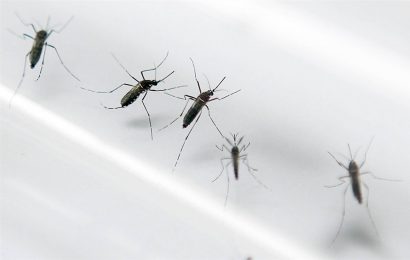Studies on coffee consumption has led specialists to believe that drinking coffee can lead to a longer life
What scientists found has resurfaced the conversation on the effects that coffee consumption has on our health.
The study surveyed 520,000 people in 10 European countries and represented the largest study every made on coffee and mortality. The results showed that drinking more coffee can significantly lower a person’s risk of death.
The second study focused on non-white populations. The study included 185,000 African-Americans, Native Americans, Hawaiians, Japanese-Americans, Latinos and whites. The results showed that coffee increases longevity across different races.
Those who drank 2-4 cups of coffee per day had an 18% lower risk of death, compared to those who did not consume coffee at all. These studies have brought similar results to previous studies, said Veronica Wendy Setiawan, associate professor of preventative medicine at USC’s Keck School of Medicine.
“Given these very diverse populations, all these people have different lifestyles. They have very different dietary habits and different susceptibilities — and we still find similar patterns,” Setiawan said.
The new study shows that mortality is inversely related to coffee consumption for diseases such as heart disease, cancer, respiratory disease, stroke, diabetes, and kidney disease.
In Europe, the study showed that there is an inverse relationship between coffee consumption and liver disease, suicide in men, cancer in women, digestive and circulatory diseases. People who drank 3+ cups of coffee per day had a lower risk of death than those who did not drink coffee at all.
“We looked at multiple countries across Europe, where the way the population drinks coffee and prepares coffee is quite different,” said Marc Gunter, reader in cancer epidemiology and prevention at Imperial College’s School of Public Health in the UK, who co-authored the European study.
“The fact that we saw the same relationships in different countries is kind of the implication that its something about coffee rather than its something about the way that coffee is prepared or the way it’s drunk,” he said.
Coffee’s Biological Benefits
Studies have shown that coffee contains certain compounds that have both neuroprotective and anti-inflammatory properties that can reduce the risk for illnesses such as Parkinson’s disease.
In the study that took place in Europe, those who drank coffee had a tendency of having lower levels of inflammation, healthier lipid profiles and better glucose control in comparison to those who did not consume coffee. However, it remained unclear which particular compounds of coffee beans provide such health benefits, but further explorations will take place on this matter.
At the same time, the studies separated the smokers from the non-smokers, since smoking has been universally known to reduce lifespan and is linked to a lot of deceases. However, scientists discovered that this did not intervene in the results in any way.
“Smoking doesn’t seem to blunt the effects of coffee,” Gunter said. “It didn’t matter whether you smoked or not. There was still a potential beneficial affect of coffee on mortality.”
With this in mind, Dr. Alberto Ascherio, professor of Epidemology and Nutrition at Harvard Chan School of Public Health, said that people should be careful of this finding.
“Even if it was in some way true, it doesn’t make sense to me, because by smoking, you increase your mortality several-fold. Then, if you reduce it by 10% drinking coffee, give me a break,” said Ascherio, who was not involved in the study.
“I think it’s a dangerous proposition because it suggests that a smoker can counteract the effects of smoking by drinking coffee, which is borderline insane.”



